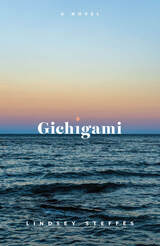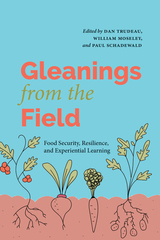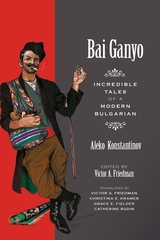
Bai Ganyo has been translated into most European languages, but now Victor Friedman and his fellow translators have finally brought this Balkan masterpiece to English-speaking readers, accompanied by a helpful introduction, glossary, and notes.
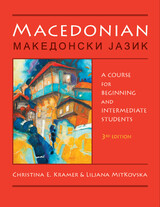
Macedonian, the official language of the Republic of Macedonia, is spoken by two and a half million people in the Balkans, North America, Australia, and other émigré communities around the world. Christina E. Kramer’s award-winning textbook provides a basic introduction to the language. Students will learn to speak, read, write, and understand Macedonian while discussing family, work, recreation, music, food, health, housing, travel, and other topics.
Intended to cover one year of intensive study, this third edition updates the vocabulary, adds material to help students appreciate the underlying structure of the language, and offers a wide variety of new, proficiency-based readings and exercises to boost knowledge of Macedonian history, culture, literature, folklore, and traditions.
Winner, Best Contribution to Language Pedagogy, American Association of Teachers of Slavic and Eastern European Languages
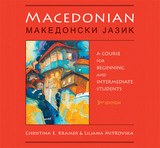
This set of audio CDs is designed to supplement the award-winning language textbook Macedonian: A Course for Beginning and Intermediate Students, Third Edition, by Christina E. Kramer and Liljana Mitkovska. The CDs contain almost two hours of audio tracks that were recorded in Macedonia by native speakers who bring to life the characters from the textbook’s story. The set additionally includes exercises for listening comprehension and the pronunciation of individual sounds.
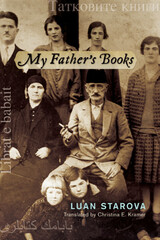
In My Father’s Books, the first volume in Luan Starova’s multivolume Balkan Saga, he explores themes of history, displacement, and identity under three turbulent regimes—Ottoman, Fascist, and Stalinist—in the twentieth century. Weaving a story from the threads of his parents’ lives from 1926 to 1976, he offers a child’s-eye view of personal relationships in shifting political landscapes and an elegiac reminder of the enduring power of books to sustain a literate culture.
Through lyrical waves of memory, Starova reveals his family’s overlapping religious, linguistic, national, and cultural histories. His father left Constantinople as the Ottoman Empire collapsed, and the young family fled from Albania to Yugoslav Macedonia when Luan was a boy. His parents, cosmopolitan and well-traveled in their youth, and steeped in the cultures of both Orient and Occident, find themselves raising their children in yet another stagnant and repressive state. Against this backdrop, Starova remembers the protected spaces of his childhood—his mother’s walled garden, his father’s library, the cupboard holding the rarest and most precious of his father’s books. Preserving a lost heritage, these books also open up a world that seems wide, deep, and boundless.

The Time of the Goats is the second novel in Luan Starova’s acclaimed multivolume Balkan saga. It follows the main characters from My Father’s Books and the tragicomic events of their lives in Skopje as the narrator’s intellectual father and the head goatherd become friends. As local officials clumsily carry out absurd policies, Starova conveys the bonds of understanding and mutual support that form in Skopje’s poorest neighborhoods. At once historical and allegorical, folkloric and fantastic, The Time of the Goats draws lyrically on Starova’s own childhood.
READERS
Browse our collection.
PUBLISHERS
See BiblioVault's publisher services.
STUDENT SERVICES
Files for college accessibility offices.
UChicago Accessibility Resources
home | accessibility | search | about | contact us
BiblioVault ® 2001 - 2025
The University of Chicago Press


